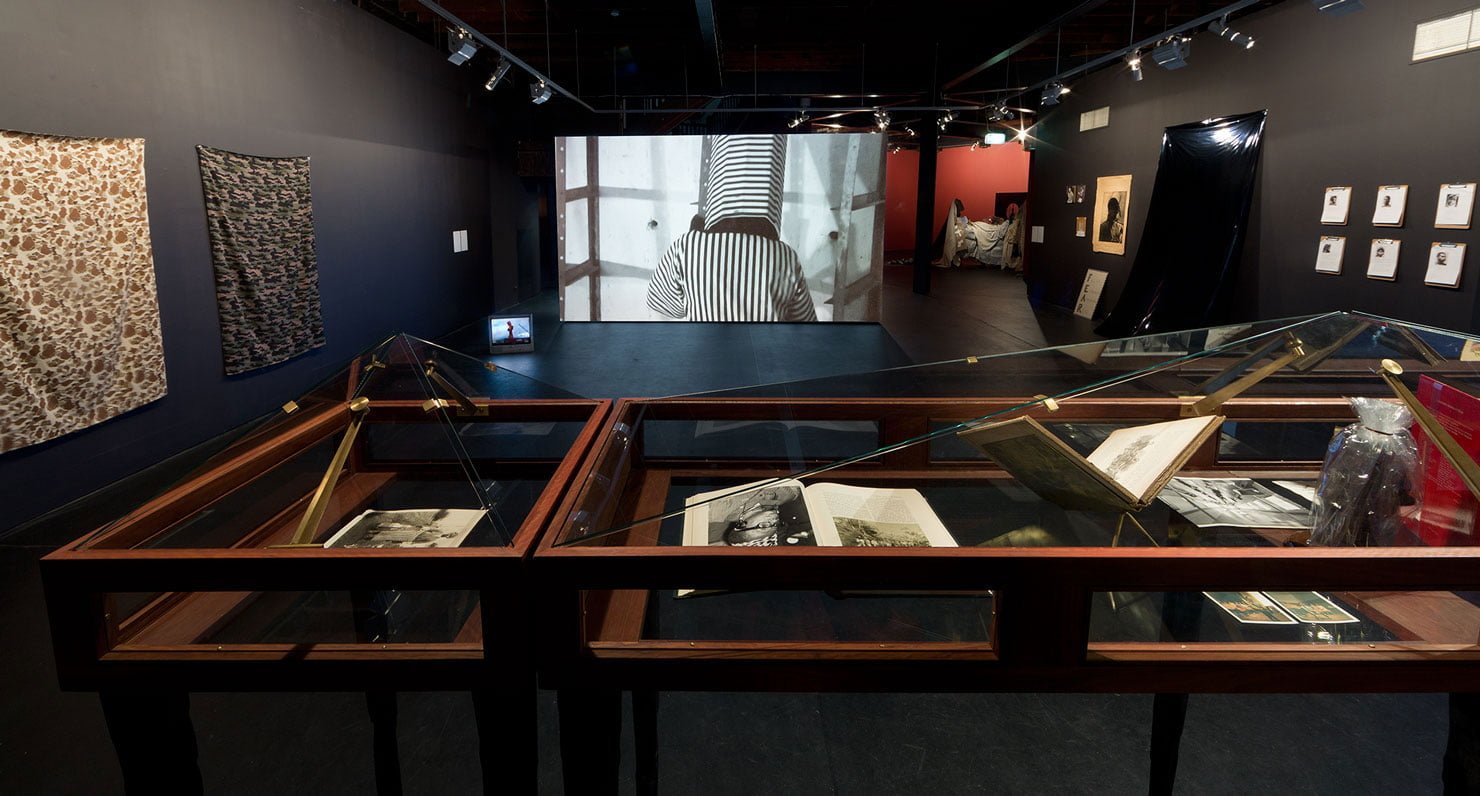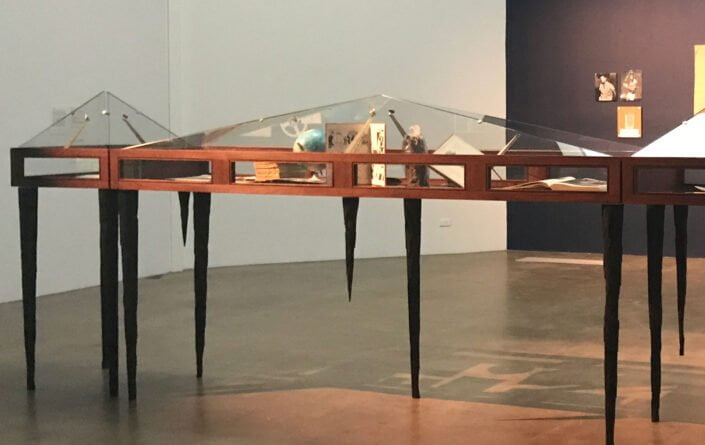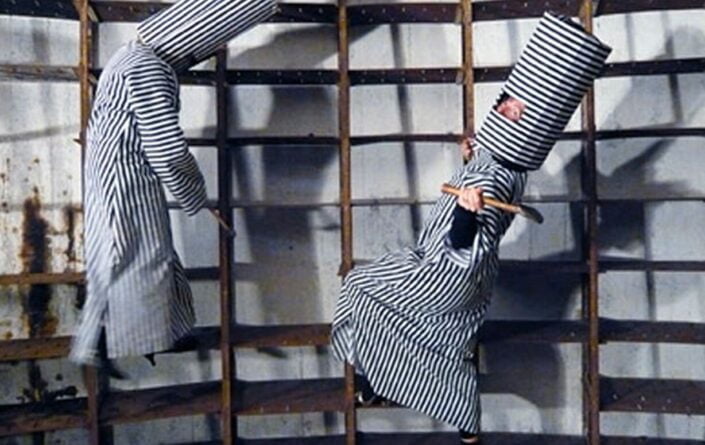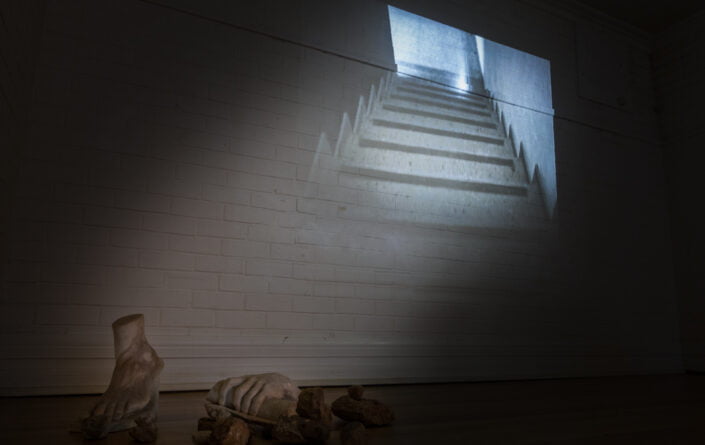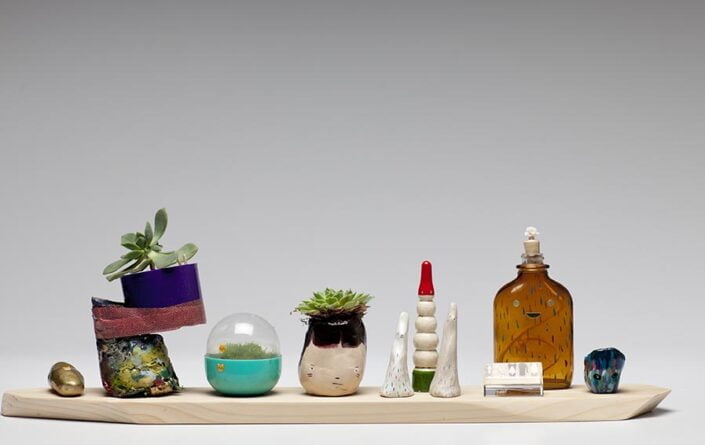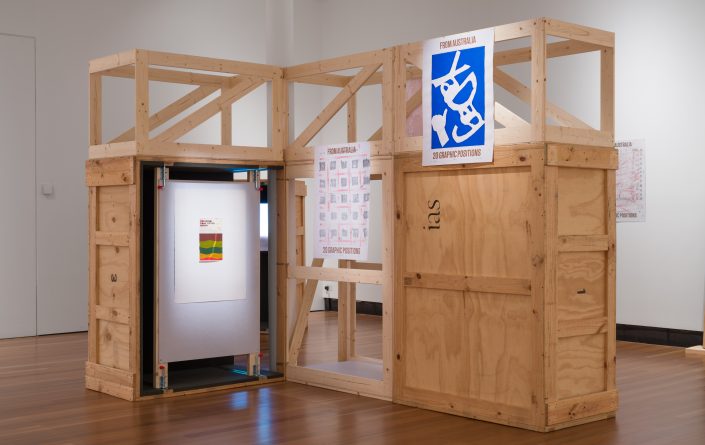Brook Andrew
Brook Andrew examines dominant Western narratives and insinuates the forgotten, often invisible histories of colonial societies. Harvest and Memory Archive (both 2015) were created within the context of the ANZAC centenary, and challenge the narrative and legacy of that event.
Deeply informed by his own cultural background, Harvest presents a wunderkammer filled with rare books, postcards, objects and ephemera from Andrew’s personal archive, highlighting aspects of the narrative that have generally been overlooked – notably the role of Indigenous servicemen and women.
Fraught with straight historical reading, these works are – as anthropologist and Foundation Chair of Australian Indigenous Studies at the University of Melbourne, Marcia Langton has posited – Andrew’s ‘way of answering fundamental questions for an artist: How to express difficult, even overwhelming, emotional and intellectual experiences? How to honour the suffering and gravity of the human experience?’ Charged with new possibilities, stories and implications, they offer us the opportunity to reassess, redefine and recreate our here-and-now.Brook Andrew examines dominant Western narratives and insinuates the forgotten, often invisible histories of colonial societies. Harvest and Memory Archive (both 2015) were created within the context of the ANZAC centenary, and challenge the narrative and legacy of that event.
Deeply informed by his own cultural background, Harvest presents a wunderkammer filled with rare books, postcards, objects and ephemera from Andrew’s personal archive, highlighting aspects of the narrative that have generally been overlooked – notably the role of Indigenous servicemen and women.
Fraught with straight historical reading, these works are – as anthropologist and Foundation Chair of Australian Indigenous Studies at the University of Melbourne, Marcia Langton has posited – Andrew’s ‘way of answering fundamental questions for an artist: How to express difficult, even overwhelming, emotional and intellectual experiences? How to honour the suffering and gravity of the human experience?’ Charged with new possibilities, stories and implications, they offer us the opportunity to reassess, redefine and recreate our here-and-now.

